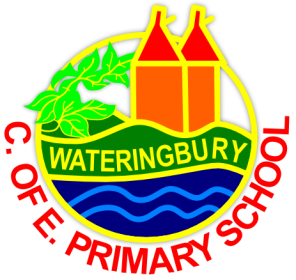English
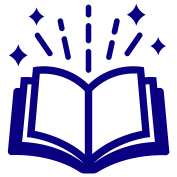
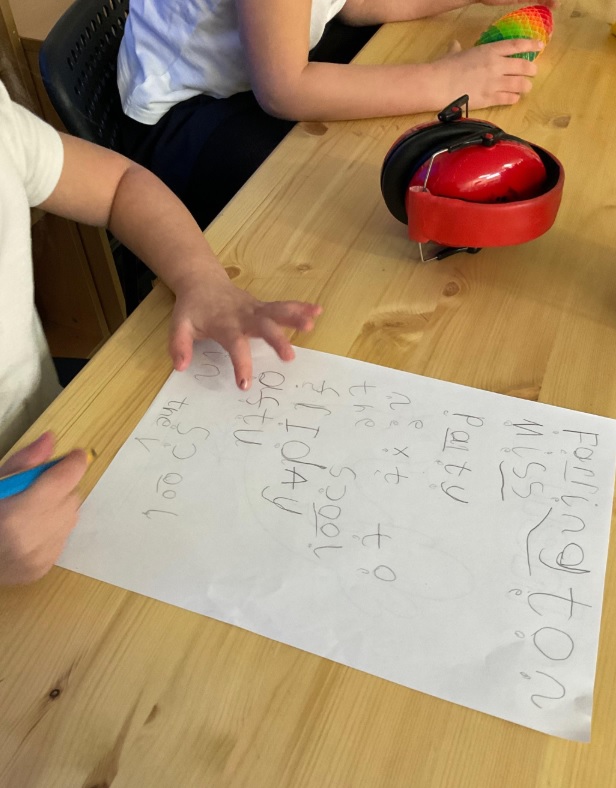
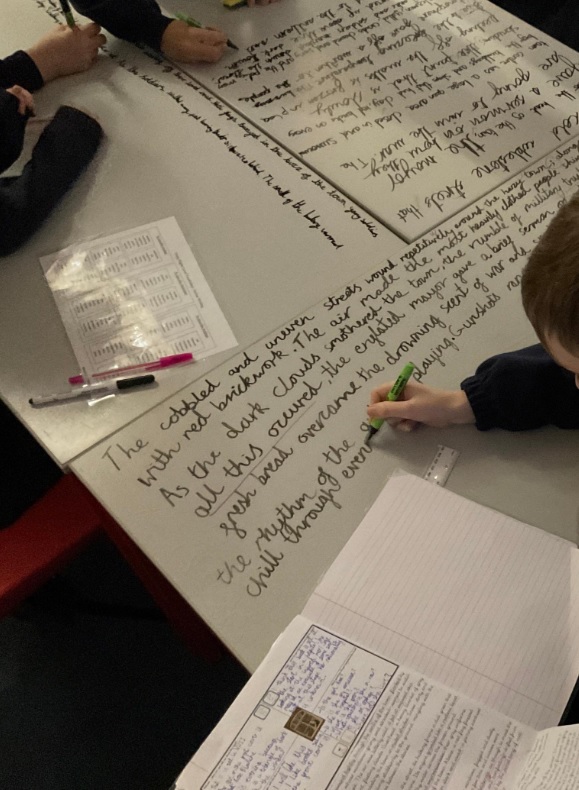
We use Floppy's Phonics to support our teaching of phonics and early reading. For information about the scheme visit https://floppysphonics.com.
AIMS
At Wateringbury School, we recognise that language and literacy are essential for children to reach their full potential. By engaging with high-quality literature, effective teaching methods, and diverse writing opportunities, our children acquire vital skills that they can apply throughout the entire school curriculum. Our English curriculum aims to empower all children, alongside equipping them with the ability to understand and utilise language. We strive to engage every child in enriching learning experiences that foster a lifelong passion for reading, whilst also building their confidence to communicate effectively in both speaking and writing. We know that literacy can transform lives, and we are committed to ensuring each child feels confident and competent in exploring the world of literature.
TEACHING METHODS
Wateringbury follows the Early Years Foundation Stage Curriculum Guidance and the 2014 English Programmes of Study for Key Stages 1 and 2. English is taught daily through an integrated text-based approach that utilises ‘Drawing Club’ in Early Years and Key Stage 1 and the ‘Wateringbury Pathway’ in Key Stage 2. This method encompasses all aspects of English: reading, writing and oracy, along with a daily shared reading session tailored to meet the individual needs of the children. Children from EYFS to Year 2 participate in focused daily phonics lessons using the Floppy’s Phonics program. Children at the end of Year 2 and those in Key Stage 2 receive daily spelling instruction using Spelling Shed. We emphasise handwriting to promote coherent writing that our students can take pride in, teaching it daily through Letter Join.
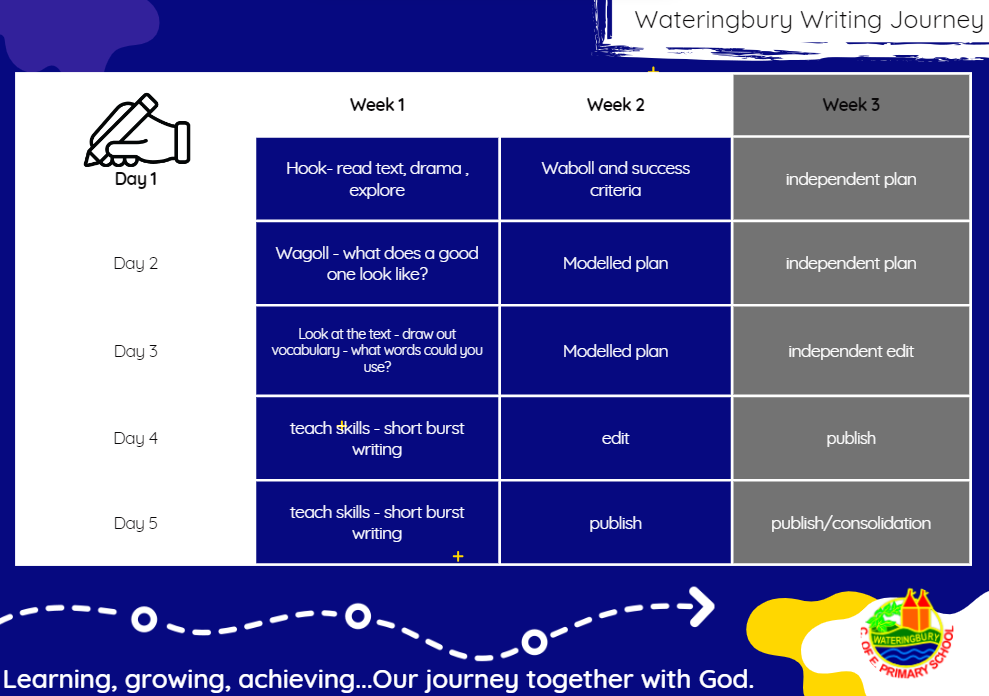
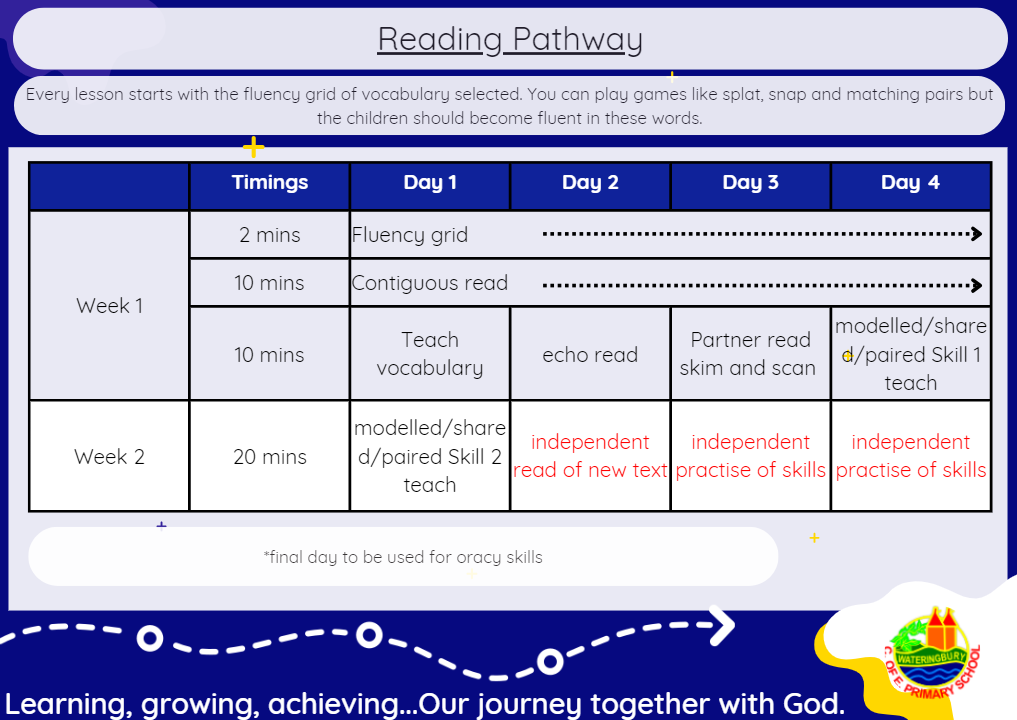
WHAT WILL CHILDREN BE ABLE TO DO?
Through high-quality instruction in phonics, reading, writing, spoken language and listening, our students (by the end of Year 6) should:
- Leave our school with a strong literacy foundation for their future.
- Read fluently while clearly understanding how to decode unfamiliar words.
- Cultivate a love for reading that enhances their imagination and creativity.
- Pose meaningful questions to deepen their understanding and expand their knowledge.
- Acquire a diverse vocabulary that enables them to articulate responses clearly and accurately.
- Express their opinions coherently and confidently.
- Independently plan, write, and edit for various purposes and text types, mastering self-editing to improve their work.
- Present their learning confidently through handwriting, computing skills, and oral presentations.
Teachers will strive to:
- Foster an enjoyable and supportive environment where all children feel confident to express themselves in both spoken and written forms.
- Meet the standards set by the National Curriculum and the EYFS Curriculum Guidance.
- Effectively incorporate ICT to enhance teaching and learning.
- Regularly monitor and evaluate the quality of instruction through consistent assessments.
Teachers also plan to integrate literature with other subjects to provide students with a well-rounded and comprehensive learning experience across the curriculum when applicable.
